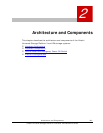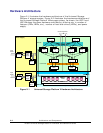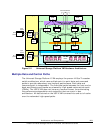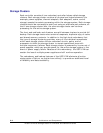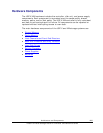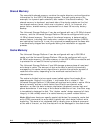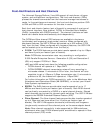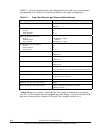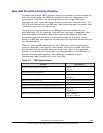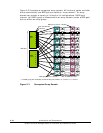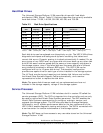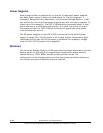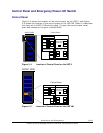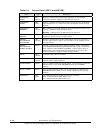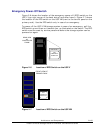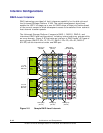
Architecture and Components 2-9
Hitachi Universal Storage Platform V/VM User and Reference Guide
Back-End Directors and Array Domains
The back-end director (BED) features control the transfer of data between the
disk drives and cache. The BEDs are installed in pairs for redundancy and
performance. The USP V can be configured with up to eight BED pairs,
providing up to 64 concurrent data transfers to and from the disk drives. The
USP VM is configured with one BED pair, which provides eight concurrent data
transfers to and from the disk drives.
The disk drives are connected to the BED pairs by fibre cables using an
arbitrated-loop (FC-AL) topology. Each BED pair has eight independent fibre
back-end paths controlled by eight back-end microprocessors. Each dual-
ported fibre-channel disk drive is connected through its two ports to each
board in a BED pair over separate physical paths for improved performance as
well as redundancy.
Table 2-2 lists the BED specifications. Each BED pair contains eight buffers
(one per fibre path) that support data transfer to and from cache. Each dual-
ported disk drive can transfer data over either port. Each of the two paths
shared by the disk drive is connected to a separate board in the BED pair to
provide alternate path capability. Each BED pair is capable of eight
simultaneous data transfers to or from the HDDs.
Table 2-2 BED Specifications
Parameter Specifications
Number of back-end director features USP V: 1 – 8
USP VM: 1
Back-end paths per BED feature 8
Back-end paths per storage system USP V: 8 – 64
USP VM: 8
Back-end array interface type Fibre-channel arbitrated loop (FC-AL)
Back-end interface transfer rate (burst rate) 400 MB/sec (4 Gbps)
Maximum concurrent back-end operations per BED feature 8
Maximum concurrent back-end operations per storage system USP V: 64
USP VM: 8
Back-end (data) bandwidth USP V: 68 GB/sec
USP VM: 8.5 GB/sec



